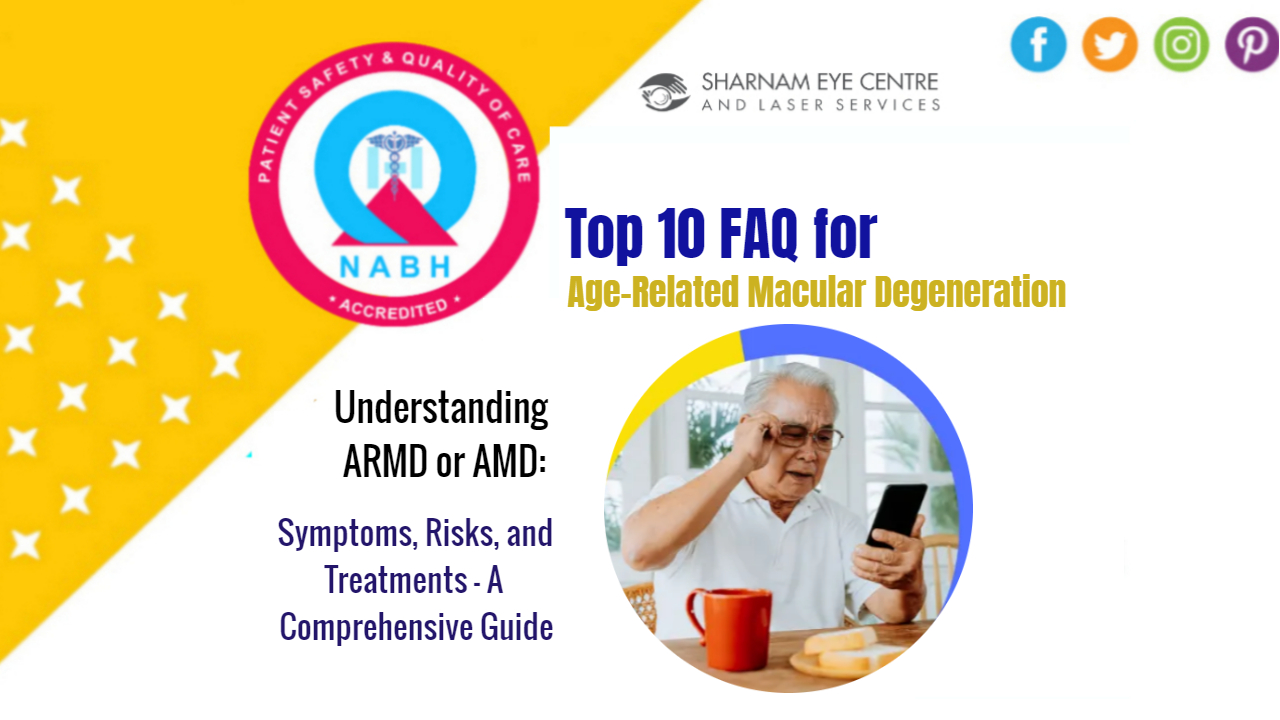Top 10 FAQ for Age-Related Macular Degeneration – Understanding ARMD or AMD: Symptoms, Risks, and Treatments – A Comprehensive Guide
1. What is age-related macular degeneration?
AMD is a common eye condition and a leading cause of vision loss among people age 50 and older. It causes damage to the macula, a small spot near the center of the retina and the part of the eye needed for sharp, central vision.
2. What are the types of AMD?
There are two main types: Dry AMD, which is more common and less severe, and Wet AMD, which is more serious and can lead to more rapid vision loss.
3. What are the symptoms of AMD?
Early AMD often doesn’t have symptoms. Later stages may include blurred or reduced central vision, straight lines appearing wavy, and difficulty seeing in low light.
4. Who is at risk for AMD?
Risk factors include age (over 50), smoking, genetics, race (Caucasians are more likely to develop AMD than other races), and family history.
5. How is AMD diagnosed?
AMD is diagnosed through a comprehensive eye exam that includes visual acuity testing, a dilated eye exam, and sometimes optical coherence tomography (OCT) or fluorescein angiography.
6. Can AMD be prevented?
While AMD cannot be prevented, risk can be reduced by not smoking, eating a healthy diet rich in green, leafy vegetables and fish, maintaining normal blood pressure and cholesterol levels, and having regular eye exams.
7. How is AMD treated?
Treatment depends on the type of AMD. For dry AMD, there’s no current treatment but lifestyle changes can slow progression. For wet AMD, treatments include anti-VEGF injections, laser therapy, and photodynamic therapy.
8. What are anti-VEGF injections?
Anti-VEGF therapy involves injections into the eye to block a protein that stimulates the growth of abnormal blood vessels in the retina. It’s a common treatment for wet AMD.
9. Is there a cure for AMD?
Currently, there is no cure for AMD, but treatments can slow the progression or improve vision.
10. What is the outlook for people with AMD?
The outlook varies depending on the type and stage of AMD. Many people maintain active lifestyles despite AMD. Regular eye care and treatments can help manage the condition and preserve vision.
It’s important for individuals to have regular eye examinations, especially those over 50, to detect AMD early and manage its progression effectively.
Disclaimer: This content is for informational purposes only and should not replace professional medical advice, diagnosis, or treatment.



